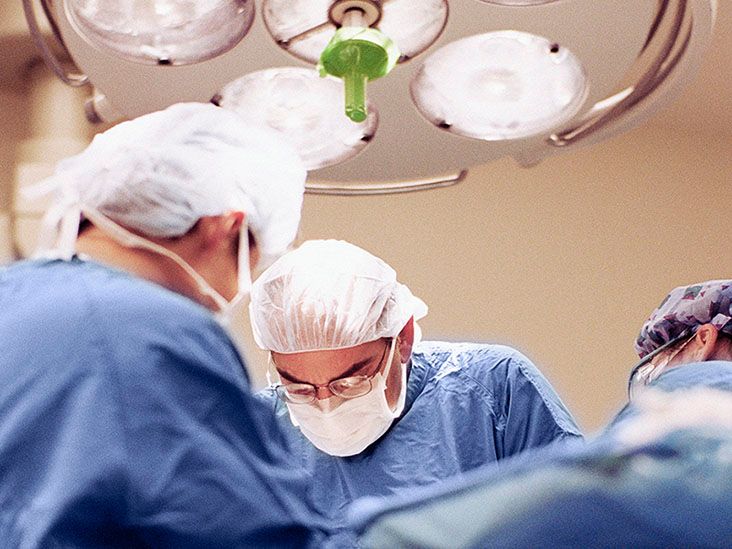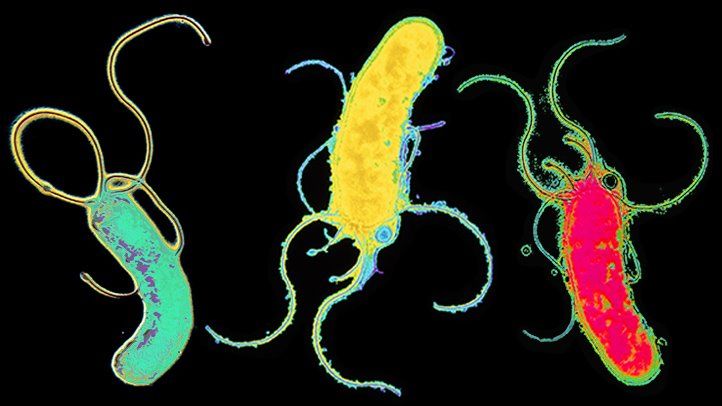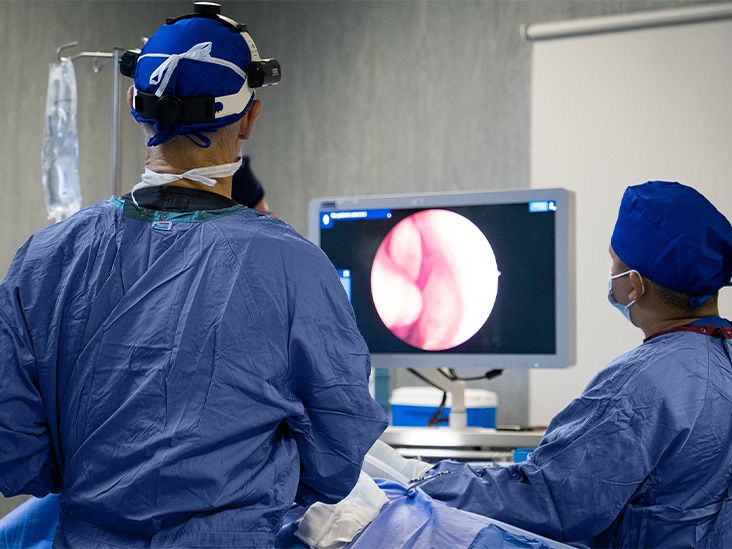Got a stomachcancer diagnosis? You'll hear a lot of "options" surgery, chemo, targeted therapy, immunotherapy, radiation, and palliative care. Below is the quickhit guide that tells you what each treatment does, when it's used, and the biggest prosandcons so you can ask the right questions right away.
No jargon, just the facts. We'll break down the science, sprinkle in realpatient stories, and point you to trustworthy sources (Mayo Clinic, National Cancer Institute, American Cancer Society). Think of it as a cheatsheet you can skim now and dip back into later.
Understanding Stomach Cancer
What is stomach cancer and why does stage matter?
Stomach cancer, most often called gastric adenocarcinoma, starts in the lining of the stomach. Like most cancers, it's stagedfrom0 (very early) toIV (advanced). The stage tells doctors how deep the tumor has grown, whether it's reached nearby lymph nodes, and if it has spread to other organs. Those details drive every treatment decision.
TNM Staging Simplified
| Stage | T (Tumor Size/Depth) | N (Nodes) | M (Metastasis) | Typical 5Year Survival |
|---|---|---|---|---|
| 0 | In situ | 0 | 0 | 90% |
| I | T1T2 | 0 | 0 | 7080% |
| II | T3T4a | N0N1 | 0 | 5060% |
| III | T4b | N2N3 | 0 | 3040% |
| IV | Any | Any | M1 | <10% |
These numbers come from the National Cancer Institute, which updates them as new research appears.
How do doctors decide which treatment fits each stage?
Think of cancer care as a recipe: the ingredients (stage, tumor location, genetics) dictate the cooking method (surgery, chemo, etc.). Roughly:
- Stage0I endoscopic removal or limited surgery.
- StageIIIII chemotherapy+radiation before surgery (neoadjuvant), then surgery, followed by more chemo or radiation.
- StageIV systemic therapy (chemo, targeted therapy, immunotherapy) plus palliative measures.
Every patient's story is unique, so the final plan always involves a multidisciplinary tumor board.
Quick check: Is my cancer operable?
If the tumor is confined to the stomach wall and hasn't spread to distant organs, surgery is usually on the table. If you have extensive spread (M1), doctors may still operate to relieve symptoms, but the aim shifts toward quality of life.
Surgery Basics
What types of stomach cancer surgery exist?
There are three main approaches:
- Endoscopic mucosal resection (EMR) tiny early lesions removed through a flexible tube.
- Subtotal (partial) gastrectomy removes the lower part of the stomach while preserving the upper section.
- Total gastrectomy the whole stomach is taken out; the esophagus is then attached directly to the small intestine.
Surgeons also decide how many lymph nodes to take out. A "D2" dissection (more nodes) has been linked to better survival in Asian studies, while Western centers often start with a "D1" approach.
When is surgery combined with other treatments?
For stageIIIII, most patients receive neoadjuvant chemotherapy (sometimes with radiation) first. Shrinking the tumor makes the operation safer and increases the chance of a clean margin. After surgery, adjuvant chemoradiation can mop up any microscopic disease.
What are the risks and recovery tips?
Any major operation carries risks: bleeding, infection, leaks at the join, and longterm nutritional challenges. Here are some practical pointers:
- Start a highprotein, smallmeal plan as soon as you can tolerate liquids.
- Take vitaminB12 injections the stomach produces a protein needed for B12 absorption, and it's gone after a total gastrectomy.
- Stay active with short walks; they help prevent blood clots and improve appetite.
- Join a support group hearing how others cope with diet changes can be surprisingly comforting.
Maria, a 58yearold patient from Texas, shared that "the first three weeks were rough, but the dietitian's recipe for bonebroth smoothies saved me. I could finally taste food again after a month." Real stories like Maria's give the numbers a human face.
Chemotherapy Overview
How does chemotherapy work for stomach cancer?
Chemo drugs travel through the bloodstream and attack fastdividing cells, including cancer cells that have broken away from the primary tumor. It's a doubleedged sword: it can shrink tumors and kill hidden cells, but it also hits hair follicles and the gut lining, causing sideeffects.
What are the most common chemo regimens?
| Regimen | Key Drugs | Typical Response Rate | Major SideEffects |
|---|---|---|---|
| FLOT | 5FU, Leucovorin, Oxaliplatin, Docetaxel | 55% | Neutropenia, neuropathy, nausea |
| XELOX | Capecitabine, Oxaliplatin | 45% | Handfoot syndrome, diarrhea |
| Cisplatin+5FU | Cisplatin, 5Fluorouracil | 40% | Kidney toxicity, taste changes |
These numbers reflect data from the 2024 NCCN Guidelines. Your oncologist will tailor the choice to your health, renal function, and personal preferences.
Neoadjuvant vs. adjuvant chemotherapy what's the difference?
Neoadjuvant chemo is given before surgery to shrink the tumor and make it easier to remove. Adjuvant chemo comes after surgery to mop up any cells left behind. Studies show that patients who get both have a higher chance of longterm survival, especially in stageIII disease.
What's hyperthermic intraperitoneal chemotherapy (HIPEC)?
When stomach cancer spreads to the lining of the abdomen (peritoneum), surgeons sometimes perform HIPEC. After removing visible tumors, they circulate heated chemo fluid through the abdominal cavity for 6090 minutes. The heat helps the drugs penetrate cancer cells more effectively. It's a specialized technique offered at highvolume centers and can extend survival for select patients.
Radiation Therapy
How does radiation help treat gastric tumors?
External beam radiation uses highenergy Xrays aimed at the stomach and surrounding tissues. Modern machines (IMRT, VMAT) shape the beam to spare healthy organs. Radiation can be used:
- Before surgery (as part of "chemoradiation") to shrink tumors.
- After surgery to reduce local recurrence.
- Palliatively, to control pain or bleeding from advanced tumors.
What sideeffects should I expect?
Most people experience fatigue, mild nausea, and occasional skin irritation where the beam enters. Rarely, radiation can cause ulceration of the stomach lining your doctor will monitor you with periodic endoscopies if you receive a high dose.
Targeted Therapy Options
What is targeted therapy and why do biomarkers matter?
Targeted drugs zero in on specific proteins that cancer cells use to grow. Before starting, the tumor is tested for biomarkers like HER2, VEGFR, or PDL1. If the marker is present, a matching drug can be added to chemo, often improving response rates.
FDAapproved targeted agents for stomach cancer
| Biomarker | Drug | Typical Response |
|---|---|---|
| HER2 positive | Trastuzumab (Herceptin) | 30% improvement in overall survival (ToGA trial) |
| VEGFR | Ramucirumab | Modest benefit in laterline setting |
| Multiple alterations | Regorafenib | Stabilizes disease in refractory cases |
| HER2 positive (after progression) | Trastuzumabderuxtecan | High response in recent 2023 studies |
When is targeted therapy added?
Typically, HER2positive patients receive trastuzumab together with firstline chemo (often the FLOT regimen). If the disease progresses, newer antibodydrug conjugates like trastuzumabderuxtecan become options. Your oncologist will order a tissue test early the earlier you know the biomarker status, the more options you have.
Immunotherapy Insights
How do checkpoint inhibitors work?
Immunotherapy drugs such as nivolumab and pembrolizumab block proteins (PD1/PDL1) that keep the immune system from attacking cancer. By releasing the "brakes," the body's own Tcells can recognize and destroy tumor cells.
Who can benefit from immunotherapy?
Patients with microsatelliteinstabilityhigh (MSIH) tumors or high PDL1 expression are the best candidates. In many cases, immunotherapy is offered after standard chemo fails, but ongoing trials are testing it as a firstline partner.
What are the benefits and risks?
The upside: some patients experience durable responses lasting years. The downside: a small but real chance of immunerelated sideeffects, ranging from mild skin rash to more serious colitis or hepatitis. Early detection and steroids usually keep them in check.
Dr. Anna Lee, an immunooncologist at Mayo Clinic, notes that "while only about 15% of gastric cancers are MSIH, those patients often have a dramatic, longlasting response to pembrolizumab."
Personalized Treatment Plans
How do doctors combine different modalities?
Think of a symphony: each instrument (surgery, chemo, radiation, targeted drugs, immunotherapy) plays its part at the right moment. For stageIII disease, a "triplet" approachneoadjuvant chemoradiation, surgery, then adjuvant chemohas become a standard in many centers.
What factors shape the final plan?
- Patient health heart, kidney, liver function, and performance status.
- Genetic profile HER2, MSIH, PDL1, and other mutations.
- Personal goals desire for cure vs. qualityoflife focus.
- Location & expertise highvolume cancer centers often have more trial options.
What is a multidisciplinary tumor board?
It's a meeting of surgeons, medical oncologists, radiation oncologists, pathologists, nutritionists, and sometimes a patient advocate. They review scans, pathology, and labs together, then propose a balanced plan. Getting a second opinion from a reputable tumor board can give you confidence that no stone is left unturned.
Patient's Tumor Board Checklist
- Bring recent imaging (CT, PET, endoscopy photos).
- Bring pathology report with biomarker results.
- Write down your questions about sideeffects, recovery time, and travel logistics.
- Ask about clinical trial eligibility many trials require a tumor board signoff.
Managing Side Effects
What are the most common acute toxicities?
Chemo can cause nausea, fatigue, neuropathy (tingling in hands/feet), and low blood counts. Radiation adds skin irritation and occasional stomach ulceration. Targeted drugs may lead to hypertension or handfoot syndrome, while immunotherapy can trigger rash or colitis.
How can you stay nourished and energetic?
- Small, frequent meals 56 minimeals a day keep blood sugar steady.
- Proteinrich smoothies blend Greek yogurt, whey protein, banana, and almond milk.
- Hydration aim for 23 liters; electrolyte drinks help if you have vomiting.
- Supplements B12, iron, and vitaminD are often needed after gastrectomy.
Mentalhealth support
Facing cancer can feel isolating. Talking to a therapist, joining a peersupport group, or even journaling can reduce anxiety. The American Cancer Society runs online forums where you can read others' stories and ask questions anonymously.
Clinical Trial Guide
How do I find a relevant trial?
Start with clinicaltrials.gov and filter by "stomach cancer" and your location. Your oncologist can also search the NCI's trial finder or check trial listings at major centers like MDAnderson or Memorial Sloan Kettering.
What are the hottest research areas in 2025?
- CART cell therapy targeting HER2 earlyphase studies show promising activity.
- New antibodydrug conjugates (ADCs) such as trastuzumabderuxtecan in earlier lines.
- Combination regimens: PD1 inhibitors plus FLOT chemo, aiming for higher response rates.
- Liquid biopsyguided therapy using blood tests to track mutations in real time.
Sample trialcomparison table
| Phase | Target | Eligibility | Location (US) |
|---|---|---|---|
| III | PD1 + FLOT | StageIIIII, HER2 negative | Johns Hopkins, MD |
| I/II | CART HER2 | Refractory metastatic, HER2+ | UCLA, CA |
| II | Trastuzumabderuxtecan | Progressed after firstline | Mayo Clinic, MN |
Remember, clinical trials are not "lastditch" options; they often provide access to cuttingedge therapies that can be more effective than standard care.
Trusted Resources
When you need a deep dive, these organizations keep their information uptodate and evidencebased:
- Mayo Clinic Stomach cancer diagnosis & treatment
- National Cancer Institute Stomach Cancer Treatment (PDQ)
- American Cancer Society Stomach Cancer
- NCCN Clinical Practice Guidelines (2024)
Conclusion
Stomachcancer treatment is highly individualizedsurgery can be curative in early stages, while systemic therapies (chemotherapy, targeted drugs, immunotherapy) extend survival and improve quality of life in later stages. The key is a multidisciplinary approach, thorough biomarker testing, and open communication with your care team. Download the printable treatmentchoice checklist, join a support community, and don't hesitate to ask your oncologist about clinicaltrial options that might fit your situation. You're not alone on this journey; together, we can navigate each step with confidence and hope.
Disclaimer: This article is for informational purposes only and does not constitute medical advice. Always consult with a healthcare professional before starting any new treatment regimen.
Related Coverage
Simple steps—maintain weight, eat more veggies, quit smoking, limit alcohol, test for H. pylori to prevent stomach cancer....
Is there a real connection between kimchi stomach cancer risk? Get the facts on fermented food safety and what you can do to stay healthy....
Gastrectomy surgery reshapes digestion; learn types, recovery timeline, diet tips, and supplements for a healthier post‑op life....
Stomach cancer treatment options, risks, and recovery tips explained in plain language—helping you ask the right questions now....
Stomach cancer quizzes boost public knowledge on risk factors, symptoms, prevention and facts. Interactive quizzes empower early detection and care seeking....
Stomach cancer chemotherapy uses drug combos before or after surgery and as treatment for advanced disease, with side‑effect tips....
Get insights on how immunotherapy for stomach cancer works, who benefits most, side effects, and key questions for your oncologist....
Compare stomach cancer vs ulcer symptoms, causes, tests and treatments, and spot red‑flag signs that require urgent attention....
Learn how age, H. pylori, diet, smoking, and genetics affect stomach cancer risk and discover steps to lower your chances....
A stomach cancer diagnosis includes upper endoscopy with biopsy, staging scans, and treatment planning to guide you forward....









